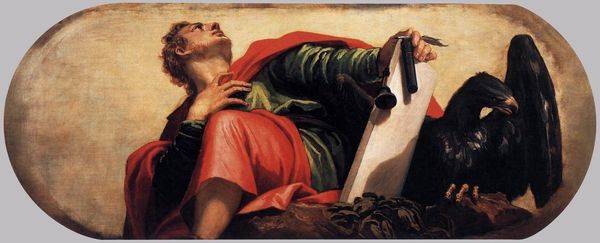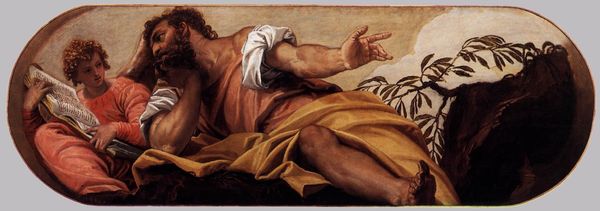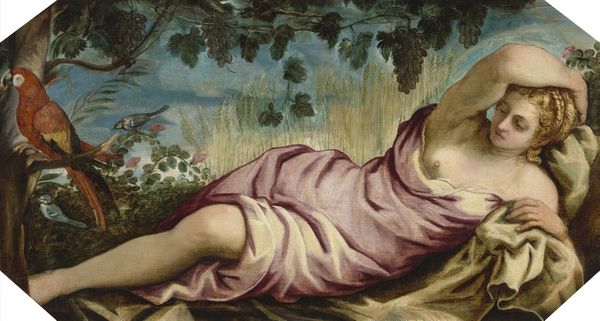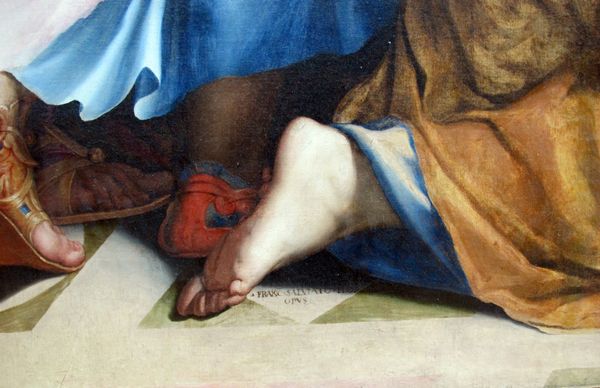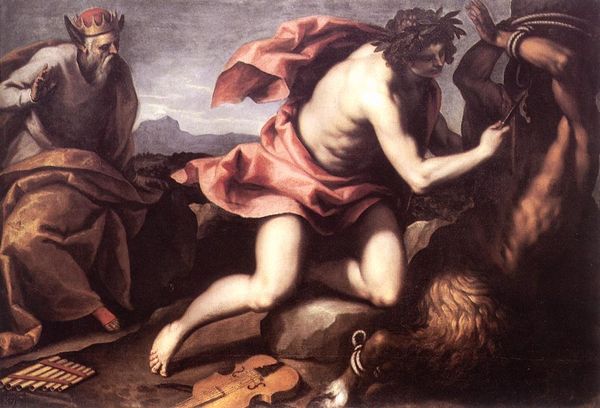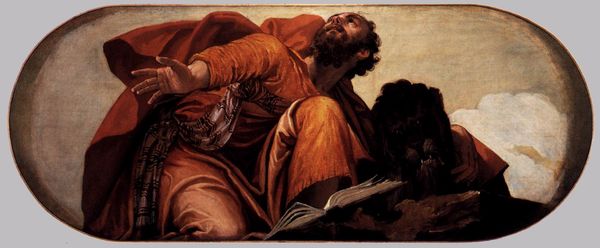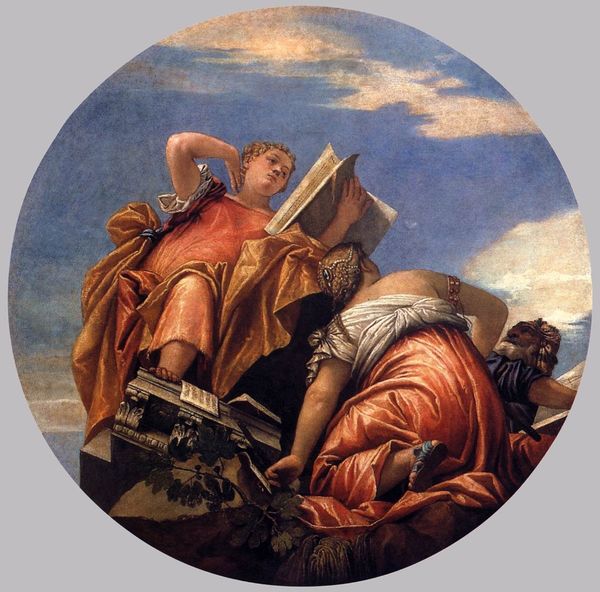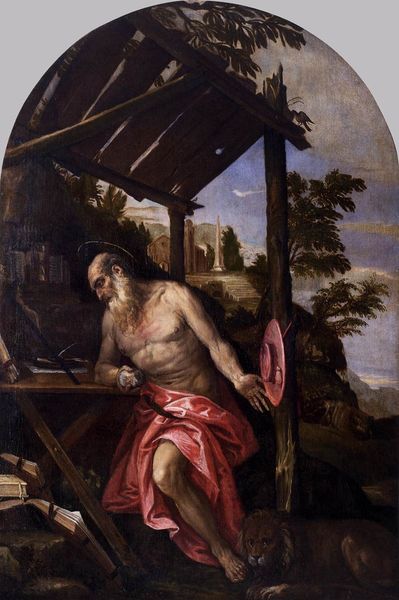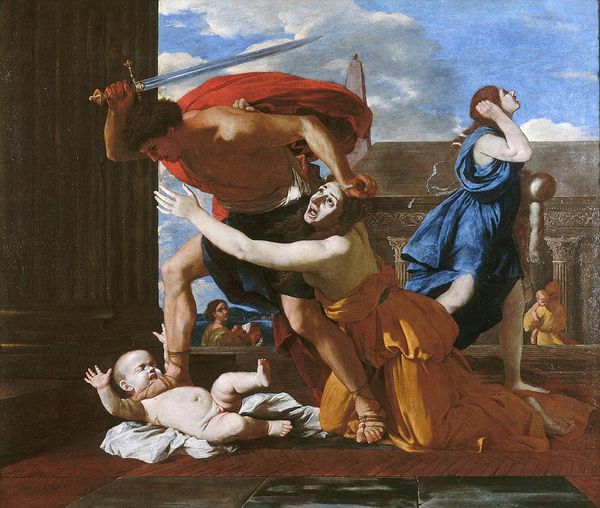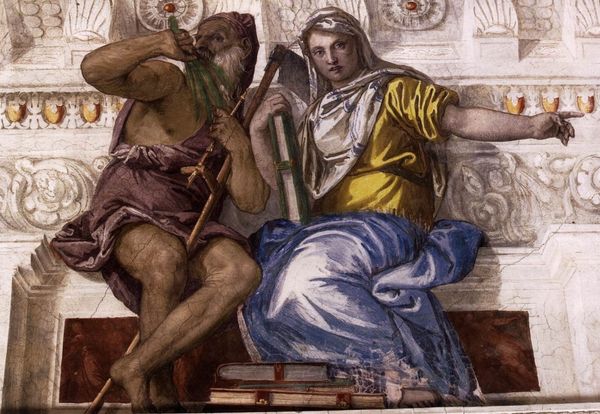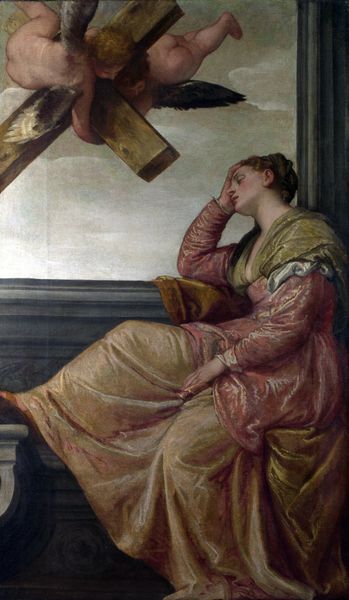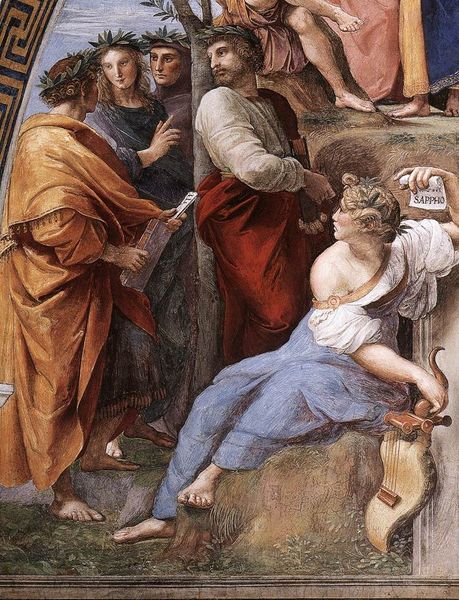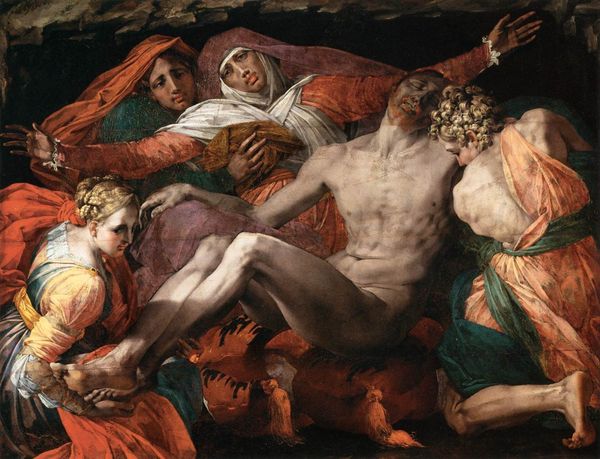
painting, oil-paint
#
portrait
#
venetian-painting
#
painting
#
oil-paint
#
figuration
#
oil painting
#
underpainting
#
christianity
#
history-painting
#
italian-renaissance
#
portrait art
#
fine art portrait
#
christ
Dimensions: 85 x 200 cm
Copyright: Public domain
Paolo Veronese painted "St Luke" in the 16th century, during the height of the Venetian Renaissance. In this painting, St Luke is shown as an idealized figure, his strong body draped in classical robes as he writes his gospel. Next to him is the ox, his symbolic animal. Veronese’s paintings often portray a harmonious vision of Venice, reflecting the city’s wealth and power at the time. But this idealized view often glossed over the social inequalities that were also present. The choice to depict St Luke, a figure associated with compassion, is an interesting one. While Venice thrived as a commercial center, it was also a place of stark class divisions. Veronese paints a vision of harmony while relying on the exploitation of labor and resources that was central to Venice's prosperity. The painting invites us to consider the complexities of history, where beauty and exploitation often coexist. It's a reminder that art, while offering moments of transcendence, is always embedded in the social and economic realities of its time.
Comments
No comments
Be the first to comment and join the conversation on the ultimate creative platform.
